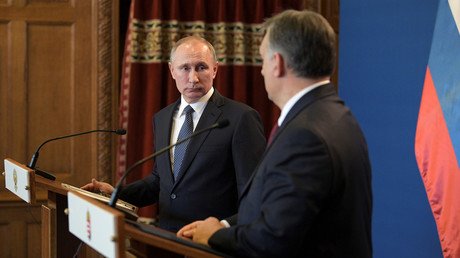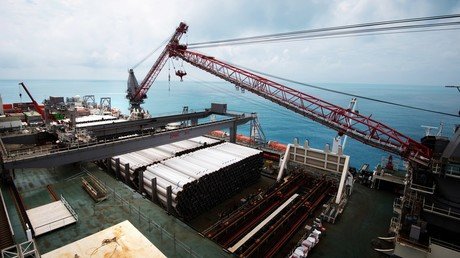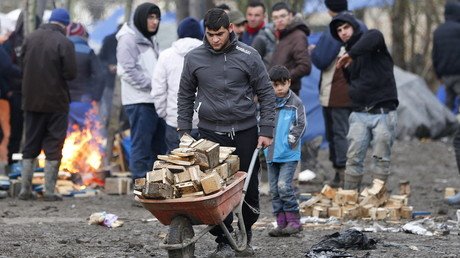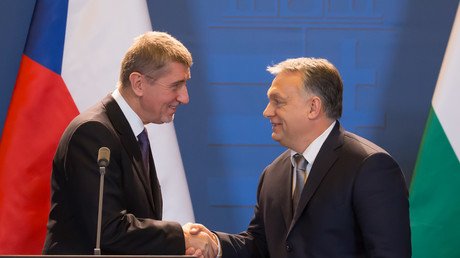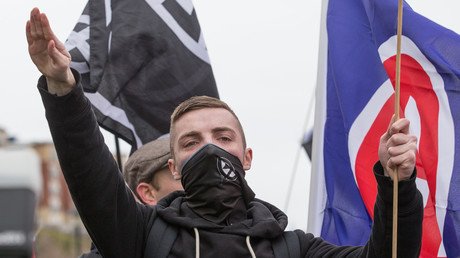Orban’s Moscow visit a middle finger gesture to EU after last week’s humiliation
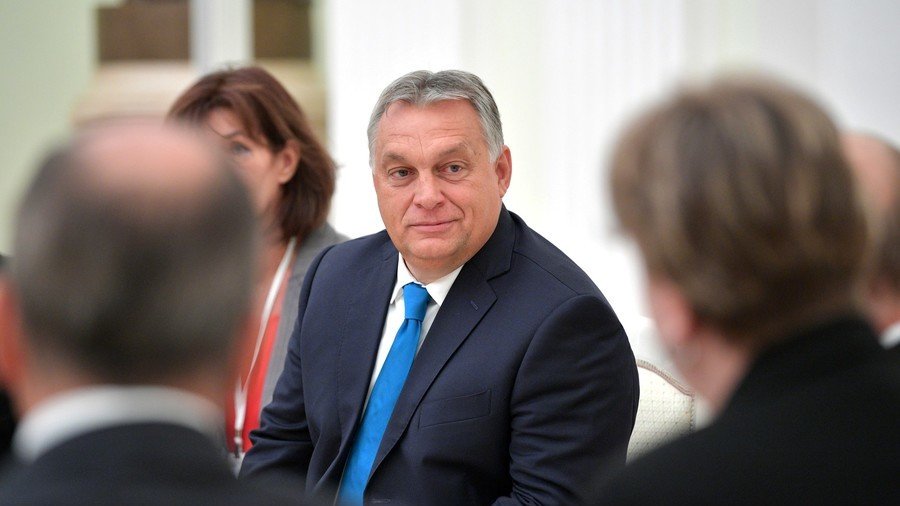
Russian President Vladimir Putin is reviled as an enemy of the West in general, and of the EU in particular, and yet Hungarian Prime Minister Orban continues to conduct “business as usual” with the master of the Kremlin.
The “salon des refusés” of political dissidents in the EU is getting bigger by the day. Less than a week after his government was condemned in a vote in the European parliament, Orban is in Moscow for talks about energy with Putin. His visit to Russia is the political equivalent of giving the EU the finger following last week’s humiliation.
Orban is not alone. In his battle with the EU over immigration and the rule of law, he is supported by Poland and the Czech Republic. Poland, which is also facing an Article 7 procedure against it by the European Commission, has vowed to protect Hungary, just as Hungary has vowed to protect Poland. So there is no way that the voting rights of either country can be removed, since the ultimate vote to do so requires unanimity. Orban also recently received the support of Czech Prime Minister Andrej Babis and of the Italian Minister of the Interior, Matteo Salvini.
These politicians have voiced support for Orban's stance against immigration. But they also support his pragmatic approach to Russia. Salvini is a well-known critic of the Russia sanctions, and Italy has said they should end. Parts of the Austrian government agree, the Austrian Foreign Minister Karin Kneissl having recently had Putin as a personal guest of honor at her wedding, while the Vice-Chancellor, Heinz-Christian Strache, is well known for his pro-Russian and pro-Putin views. On the other hand, Chancellor Sebastian Kurz has reassured critics that Austria is rooted in the EU and shares its stance towards Russia.
The striking thing about Orban, and about his Central European allies (who incidentally include the Czech President Milos Zeman), is that they are from countries which, as Orban puts it, suffered greatly “under Russia” in the past. He is referring to the countries’ membership of the Warsaw Pact, and their subjection to communist rule, after World War II. In Hungary’s case, the suffering was especially violent because of the suppression of the 1956 revolution in Budapest by Soviet troops. Yet it is precisely these countries who today advocate a pragmatic relationship with Russia, while countries such as Britain, and even Germany, treat Russia as if it were still a communist dictatorship with the Cold War in full swing.
The irony is all the greater because Orban personally played a key role – but one which is often forgotten by historians – in bringing about the end of Soviet rule in Central Europe. His speech in Heroes’ Square in Budapest on June 16, 1989 on the occasion of the re-burial of the leader of the 1956 uprising, Imre Nagy, was the first time anyone in the Warsaw Pact had publicly called for the withdrawal of Soviet troops. The very making of this speech showed that the old taboos – and, with them, the power of the communist dictatorship – had collapsed. This was two months before the Hungarian government opened its border with Austria, allowing tens of thousands of East Germans to cross into West Germany, and five months before the Berlin wall came down. Orban’s contribution to the chain reaction which led to these later events was therefore decisive.
There is only one explanation for this apparent paradox that some former anti-communist Central European leaders are now pro-Russian. Unlike their Western colleagues, who were never directly affected by communist rule, the states of the former Warsaw Pact understand not only that Russia is no longer the old USSR, having abandoned communism, but also that national identity, and pride in national identity, were the key to undoing communist rule in Central Europe and then in Russia itself. Orban’s 1989 speech was a patriotic appeal to Hungarians: it traced their battle for national freedom back to 1848. Freedom and national pride went hand in hand.
As in Poland, where not only national identity but also religion played a key role in the downfall of communism, Hungarians (and Czechs and many others) now see with dismay that same national identity which freed them from communism under attack from the new commissars in Brussels. This is because the approach in Western Europe is directly the opposite. Pride in one’s nation is considered backward and dangerous, largely because national pride was irredeemably damaged during the war.
The fact is that all the early member states of the EU were defeated in the war, whether by the Germans or by the Allies. During the process of defeat, national pride was ruined, either through the barbarism of Nazism and fascism or through various forms of nationalist collaboration with it. All these stain the national record. Only in Britain was national pride the key to victory; for everyone else it was the key to defeat. (The only partial exception to this rule is France, which retained some sense of national pride after the war. But, in later decades, the memory of the Gaullist resistance was effaced by a stronger memory of the national shame of Vichy.)
Because of this, Western European states have adopted the EU ideology, according to which European history before the creation of the EU was nothing but wars between nation-states. Indeed, national rivalry was the key to these wars. In order for there to be peace, it is argued, Europe’s nation-states must be dissolved in a supranational entity. Germany has accomplished the task of making a clean slate of its national history in a more complete manner than any other European state but the other countries share parts, sometimes large parts, of this same German historiographical and political model.
To be sure, the states of Central Europe have skeletons in their own cupboards concerning the war. Hungary was an ally of Nazi Germany throughout it. But the more recent memory of national victory over communism has rekindled national pride, whereas the Western European states have not enjoyed any comparable victory and so they instead put all their faith in the post-national and post-modern European project. Moreover, whereas Communism was largely rejected as an ideology by the people living under it – including in Soviet Russia – the ideology of liberalism has penetrated very deeply into the Western European consciousness, to the extent even of extinguishing national sentiment. Liberalism has been more successful in this regard than communism was, even though orthodox Marxism also called for an end to the nation-state.
This East-West fracture is a major ideological dividing line inside the European Union. The vote in the European Parliament last week, in which over two thirds of MEPs ganged up on a member state in the name of their biased interpretation of “the rule of law,” was a historic moment which brought into the open the depth of this radically different approach to politics and history. Opposite attitudes to Russia are also part of this division. As Marx said, history repeats itself, first as tragedy and then as farce, as we saw in Strasbourg last week: the European Union, like the Soviet Union, will in due course discover that national identity is stronger even than its political ideology.
Think your friends would be interested? Share this story!
The statements, views and opinions expressed in this column are solely those of the author and do not necessarily represent those of RT.

